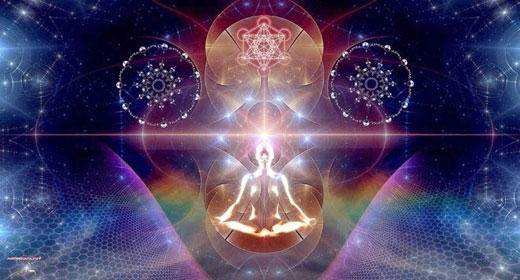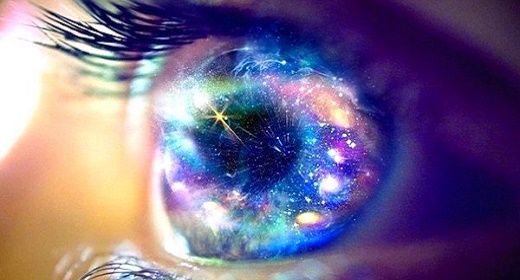by Adam Brady: “Only when Shiva is united with Shakti does he have the power to create.” – Soundarya
The history of both Eastern and Western spiritual traditions has largely been dominated by a masculine bias. From archetypes and godheads to qualities of consciousness such as strength, control, dominance, force, or rigidity, the masculine principle is often viewed as the seat of power and strength in the world.
Despite this predisposition, however, in the Vedic teachings and writings of the Upanishads, we are taught that the nature of power in all its forms is feminine. This feminine energy is known as Shakti, the goddess of the universe who infuses all creatures with energy, creativity, and power. According to Eastern teachings Shiva, the masculine principle is a sleeping, dormant quality of consciousness that must be awakened.
Like a pilot light, the power of Shakti ignites the masculine energy, giving rise to the creation of the entire universe.
The Six Types of Shakti
The power of Shakti expresses itself in six different qualities or types of energy throughout the universe. These types of Shakti are:
1. Para Shakti – The Power of Heat and Light
Found throughout the universe, Para Shakti energizes stars and galaxies to provide the radiance of light and heat energy. Within us, this power is localized in the third subtle energy center or chakra, known as the Manipura chakra.
2. Jnana Shakti – The Power of Mind and Knowledge
Jnana Shakti is the power of knowledge that manifests itself in the consciousness of the universe at every level of expression. In each of us, it is the power of the mind and intellect to form and interpret thoughts and ideas.
3. Iccha Shakti – The Power of Will or Desire
Iccha Shakti is the mind’s ability to direct energy toward manifestation. Through Iccha Shakti, our intentions activate our ability to act and tangibly affect our surroundings.
4. Kriya Shakti – The Power of Manifestation
Kriya means “action” therefore Kriya Shakti is the power that transforms Iccha Shakti into an actual event. When combined with Jnana Shakti, Kriya Shakti may also express itself through creativity and inspiration.
5. Kundalini Shakti – The Power of Bioelectromagnetic Energy
Combining both electricity and magnetism, Kundalini Shakti is the power of the dormant spiritual power that resides within our subtle energy anatomy. Resting like a coiled serpent at the base of the spine, the awakening of Kundalini Shakti triggers the evolution of consciousness within an individual.
6. Mantra Shakti – The Power of Sound and Speech
The nature of the universe is vibrational, and Mantra Shakti is the expression of the power of vibration in sound, music, and mantra (spiritual formulas). Mantra Shakti is the power that allows us to transcend to a level of awareness from which the word becomes flesh.
The Great Feminine Trinity
Now that we understand the nature of Divine Feminine energy, let’s delve into the Great Feminine Trinity to see how you can harness this power to transform your life. The great Vedic goddesses of Lakshmi, Durga, and Saraswati represent the three primary ways the power of Shakti manifests in our human experience.
While each of these deities can be thought of as actual beings, it may be easier for some to relate to them as archetypes, or a symbolic expression of certain qualities of consciousness. They can be considered anthropomorphized principles, a way of giving an abstract concept or idea a human form to make it more relatable to us in everyday life. Feel free to use whichever interpretation is most comfortable for you.
In the descriptions of the feminine trinity that follows, we’ll first explore the qualities and attributes of each goddess and then examine a Sanskrit mantra associated with that being and state of consciousness.
Lakshmi – The Goddess of Abundance
Lakshmi is the Vedic goddess of wealth, prosperity, and abundance in all its forms, both material and spiritual. Her name is drawn from the Sanskrit word Laksaya, which means “aim” or “goal”. She is often referred to as the mother goddess and occupies a place of honor in the household. Lakshmi embodies the abundance and prosperity inherent in the universe. She is the epitome of wealth consciousness.
Lakshmi is depicted as a beautiful woman with four arms, sitting or standing on a blooming lotus flower. Her four hands symbolize the four aims of human life: Artha or material abundance; Kama or desire; Dharma or purpose; and Moksha or liberation. Streams of golden coins are often seen pouring from her hands representing her abundant and affluent qualities. She wears red clothing trimmed with gold suggesting both her activity and prosperous nature.
The mantra for invoking the energy and vibration associated with Lakshmi and abundance is:
Om Shrim Maha Lakshmiyei Namaha
(OM SHREEM MAH-HA LAK-SHMEE-YAY NAHM-AH-A)
Om – Seed vibration of the universe
Shrim – Seed sound for the principle of abundance
Maha – “Great” in both quality and quantity
Lakshmiyei – Lakshmi’s name plus “yay” for an energetic boost
Namaha – “I salute”
Durga – The Goddess of Protection
Durga is the Divine Protectress, the protective mother of the universe. The name Durga means “a fort” or “a place that is difficult to overrun.” To the seeker of truth Durga represents deliverance and security from evil. However, to those that are mean-spirited or tyrannical and wish to harm the seeker of truth, she is a force of terror that stands to destroy all negative forces.
Durga’s appearance is that of a powerful and graceful figure, her face shining with compassion. She is multi-limbed, with as many as 18 arms. In each of her hands, she holds various weapons or tools used to combat evil such as a sword, trident, discus, thunderbolt, bow and arrow, and a conch shell. She sits atop a tiger in a pose known as Abhay Mudra, the fear-dispelling gesture.
The mantra for embodying the energy and vibration of protection associated with Durga is:
Om Dum Durgayei Namaha
(OM DOOM DOOR-GAH-YAY NAHM-AH-A)
Om – Seed vibration of the universe
Dum – Seed sound for the principle of protection
Durgayei – Durga’s name plus “yay” for an energetic boost
Namaha – “I salute”
Saraswati – The Goddess of Wisdom
The last member of the feminine trinity is Saraswati, the goddess of knowledge, music, art, and wisdom. She is believed to be the mother of the Vedas (India’s most ancient scriptures) and bestows human beings with the powers of learning, speech, and understanding. She is the knowingness of consciousness that abides in all things. Saraswati is also the goddess of divine speech in the form of mantra that gives rise to manifestation in physical form. Of the three goddesses, her power is often least discussed in the West, perhaps out of a desire to keep her true spiritual knowledge secret.
Saraswati is symbolized as a beautiful woman dressed in white with four arms representing the four qualities of mind, intellect, awareness, and ego. One hand embraces sacred scriptures, another holds the lotus, with her other two hands playing a musical instrument. Riding a white swan symbolizing purity and discernment, Saraswati embodies the absolute knowledge of pure awareness.
The mantra for cultivating and resonating with the knowledge and wisdom of Saraswati is:
Om Eim Saraswatyei Namaha
(OM I’M SAH-RAH-SWAT-TEE-YAY NAHM-AH-A)
Om – Seed vibration of the universe
Eim – Seed sound for the principle of wisdom and knowledge
Saraswatyei – Saraswati’s name plus “yay” for an energetic boost
Namaha – “I salute”
The Great Feminine Trinity represents a reservoir of Shakti energy expressing itself in the form of abundance, protection, and wisdom. These attributes are all qualities of consciousness that we can relate to in the goddesses of Lakshmi, Durga, and Saraswati.
Whether we invoke this energy through divine archetypes, devotion, the subtle qualities of awareness they embody, or the vibrational energy of their mantras, we can each learn to harness this power and activate their divine qualities in our lives.










































